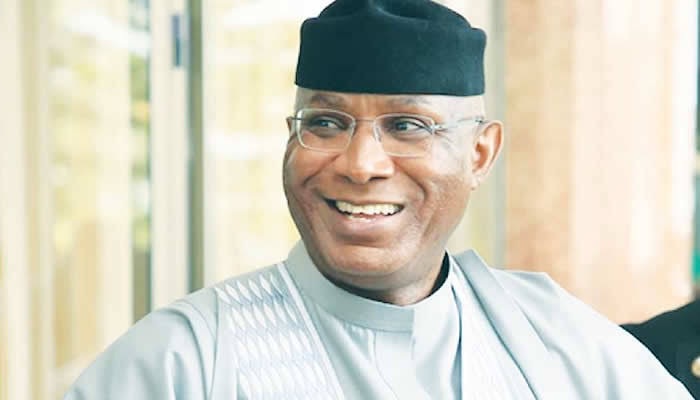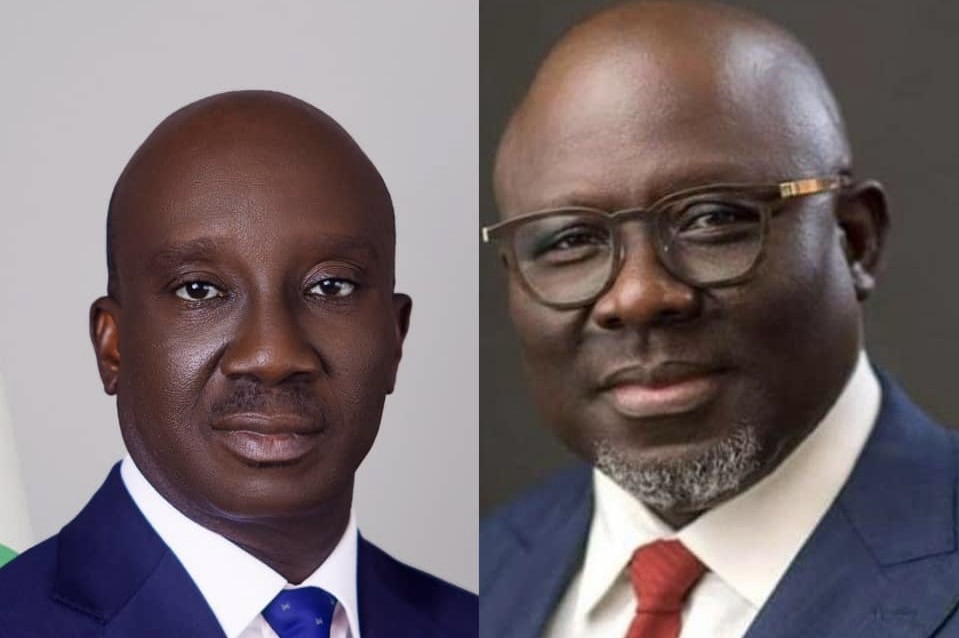Former Deputy Senate President and Delta State governorship candidate of the All Progressives Congress in the 2023 election, Senator Ovie Omo-Agege, has expressed confidence that the APC will unseat the Peoples Democratic Party in the state’s 2027 governorship race.
Speaking at a stakeholders’ meeting in Koko, Warri North Local Government Area, on Tuesday, Omo-Agege declared, “2027 is our date with destiny.
“With President Bola Ahmed Tinubu’s vision and achievements, along with our collective resolve, Delta will flip,” he stated.
Omo-Agege, however, called for “inclusive stakeholder engagement,” emphasising that “2027 demands unity. We must put aside divisions between old and new members and work together towards a common goal.”
Reflecting on the APC’s narrow loss in the 2023 Delta State governorship election, the former Deputy Senate President vowed to unseat the ruling PDP in the next election.
“We came so close in 2023, but fell short by a whisker.
“However, we’ve learnt from our mistakes and are now more determined than ever to win Delta State for the APC,” he said.
Omo-Agege rallied supporters, addressed post-election grievances, and rejected the Independent National Electoral Commission’s declaration of 4,000 votes for APC and 10,000 for PDP in Warri North, alleging systemic rigging by the PDP.
“Our votes were organic; theirs were products of writing,” he claimed.
Defending Tinubu’s economic reforms, Omo-Agege highlighted the removal of fuel subsidies and the unification of exchange rates.
While acknowledging the initial hardships, he framed these measures as crucial for Nigeria’s and Delta State’s future development.
“Although increased fuel, food, and forex prices cause pain, President Tinubu’s wise decision-making will yield a better future,” Omo-Agege added.
He noted that Delta State now receives more funds, as President Tinubu channels savings to states beyond Abuja.
This, he believes, will have a transformative impact, tying the APC’s 2027 prospects to the president’s Renewed Hope agenda.
Addressing stakeholders’ critiques, Omo-Agege admitted to strategic mistakes, including the failure to integrate new members, which led to the alienation of loyalists.
“We’ve paid the price for this oversight,” he admitted.
“I should have fostered a stronger bond between old and new members. That error had significant consequences,” he added.
He urged PDP members to defect, describing the ruling party as a “sinking ship” on the brink of collapse.
While acknowledging that APC also faces unity challenges, he downplayed internal friction as “growing pains” ahead of 2027.
“Post-congress disputes are not unique to us; even the PDP is grappling with internal conflicts,” he argued.
Omo-Agege also criticised APC members who boycotted the last election due to grievances, calling it an act of self-sabotage.
“Why stay home? Vote first, defend your votes, and then resolve issues. By staying away, we all lose,” he said.
[3/4, 17:13] Sylvester Oboh: FG unveils digital public infrastructure framework to enhance service delivery
The Federal Government has introduced a Digital Public Infrastructure framework to unify digital service delivery across government institutions, Minister of Communications and Digital Economy Bosun Tijani said on Tuesday.
The minister, in a post on X, noted that the framework adopts a whole-of-government approach and leverages private sector capabilities to deliver services efficiently.
DPI refers to a set of foundational, technology-based systems that enable seamless delivery of essential public and private services in a digital economy.
“I am pleased to announce the release of our Nigerian Digital Public Infrastructure framework—employing a ‘whole-of-government approach’ and leveraging the private sector’s capabilities to develop services to the public,” Tijani said.
The framework will enable the government to “support citizens efficiently from birth to legacy, based on a platform of interoperability across all government services,” he added.
The minister explained that the move would also ensure that technology applications in government are designed and operated without silos while recognising the responsibilities and mandates of various ministries, departments, and agencies of government across all tiers.
The DPI framework aligns with its ambition to digitise at least 75 per cent of government services by 2027 through a one-stop-shop digital platform being developed by the National Information Technology Development Agency.
The platform will provide Nigerians with seamless access to government services in a single location, eliminating fragmented service delivery across ministries, departments, and agencies.
Former Airtel Nigeria Chief Executive Officer, Carl Cruz, last year urged the government to build DPI across the country, describing it as the backbone of any modern society.
“It connects people to the essential services they need to thrive, and more importantly, it does so in an inclusive and secure manner.
“We need to ensure that no Nigerian is left behind as we build a stronger digital economy,” Cruz said at the 6th National Day of Identity in Abuja.


